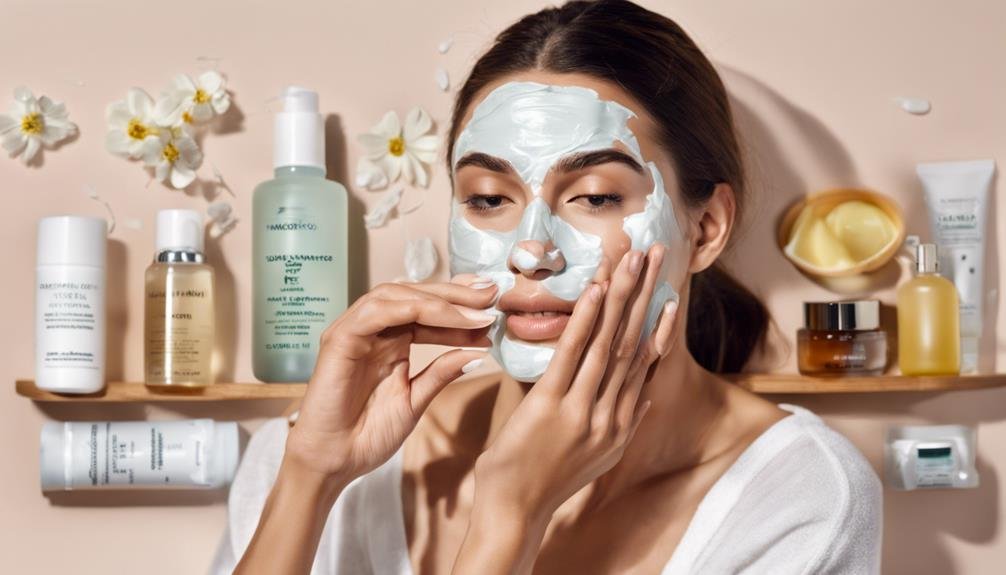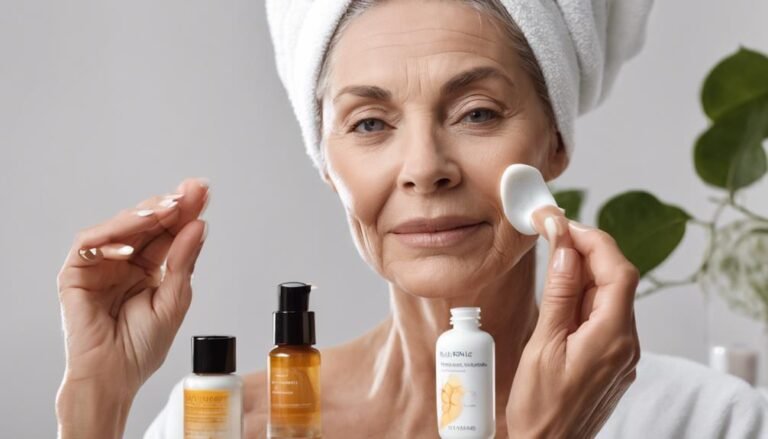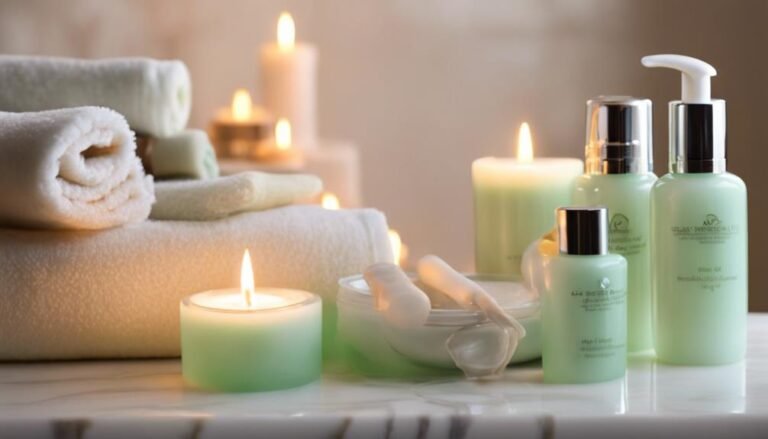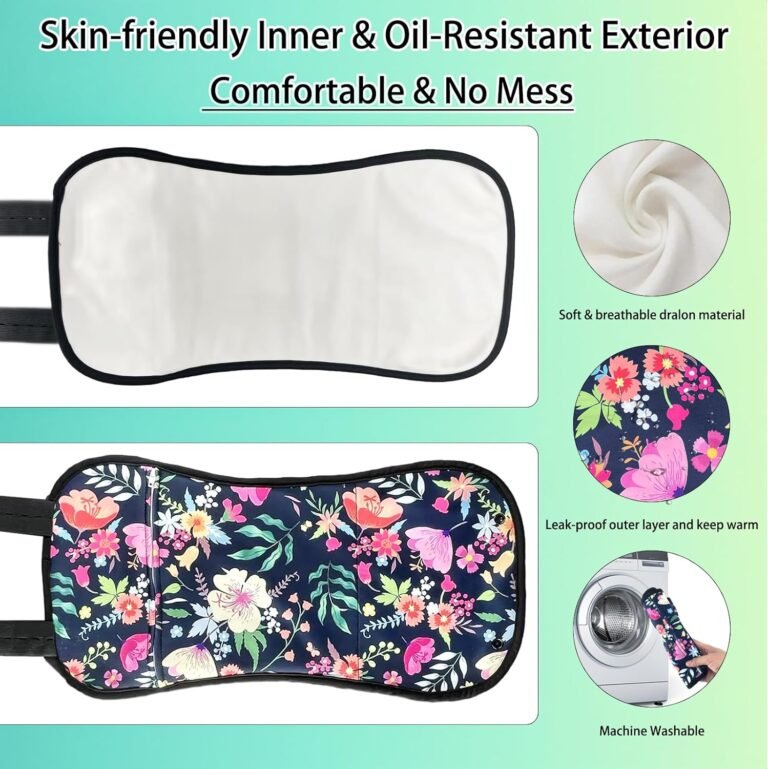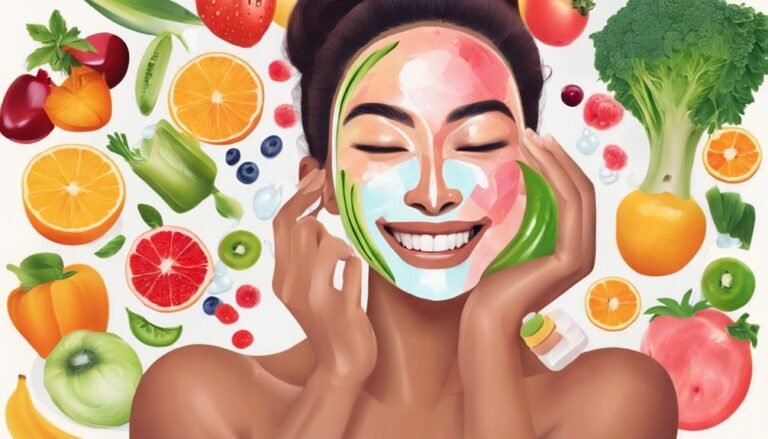How to Keep Your Skin Hydrated
Did you know that up to 60% of the human body is made up of water, emphasizing the critical role hydration plays in maintaining healthy skin? Ensuring your skin stays adequately hydrated is not only essential for its appearance but also for its overall health. By incorporating a few simple steps into your daily routine, you can help your skin retain moisture and achieve a radiant glow.
Key Takeaways
- Drink plenty of water daily to hydrate skin from within.
- Use a hydrating serum with ingredients like hyaluronic acid.
- Moisturize with a cream containing ceramides and glycerin.
- Eat water-rich foods like fruits and vegetables for internal hydration.
- Avoid hot showers and opt for lukewarm water to prevent skin dehydration.
Importance of Hydration
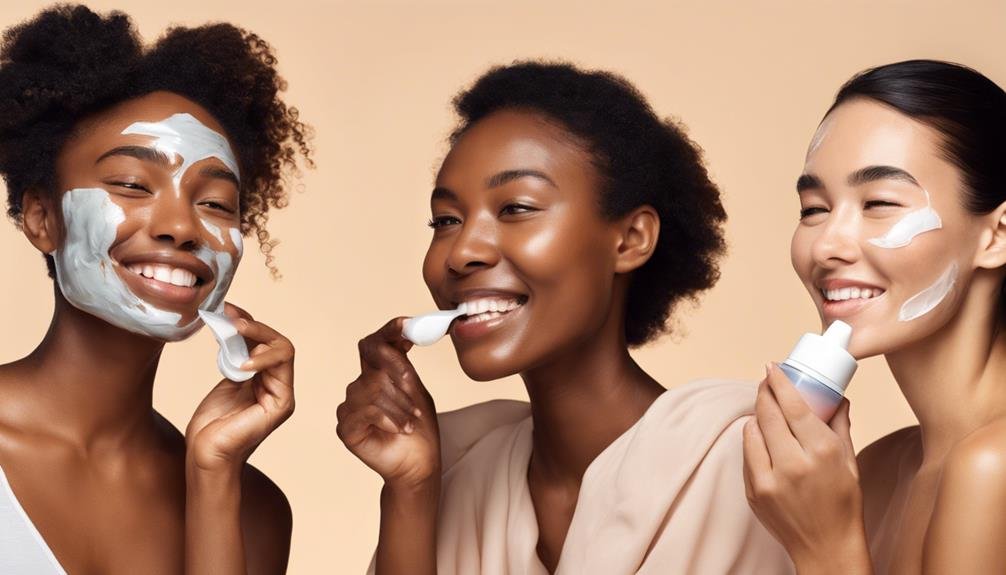
Ensuring your skin stays hydrated is crucial for maintaining its health and appearance. Hydration plays a vital role in keeping your skin looking youthful, plump, and radiant. When your skin is properly hydrated, it helps to maintain its elasticity, reducing the appearance of fine lines and wrinkles. Additionally, hydrated skin is better equipped to act as a barrier against environmental aggressors, such as pollutants and UV rays.
Proper hydration also supports the skin's natural processes, including cell turnover and collagen production. This means that well-hydrated skin is more capable of repairing itself and maintaining a healthy glow. Without sufficient hydration, your skin can become dry, dull, and prone to irritation and inflammation. Dehydrated skin is also more likely to show signs of aging prematurely.
To keep your skin hydrated, it's essential to incorporate a combination of hydrating skincare products and practices into your daily routine. Remember to drink an adequate amount of water, use a moisturizer suitable for your skin type, and consider incorporating hydrating serums or masks into your skincare regimen. By prioritizing hydration, you can support your skin's health and maintain a vibrant complexion.
Skin Type Assessment
To effectively address your skin's hydration needs, understanding your skin type is paramount. Identifying whether you have normal, dry, oily, combination, or sensitive skin can guide you in selecting the most suitable hydrating products and routines.
Normal skin typically has a balanced moisture level, while dry skin may feel tight and flaky. Oily skin tends to produce excess sebum, leading to a shiny complexion, whereas combination skin exhibits characteristics of both oily and dry skin. Sensitive skin is more prone to irritation and may react to certain ingredients.
Hydrating Ingredients to Look For
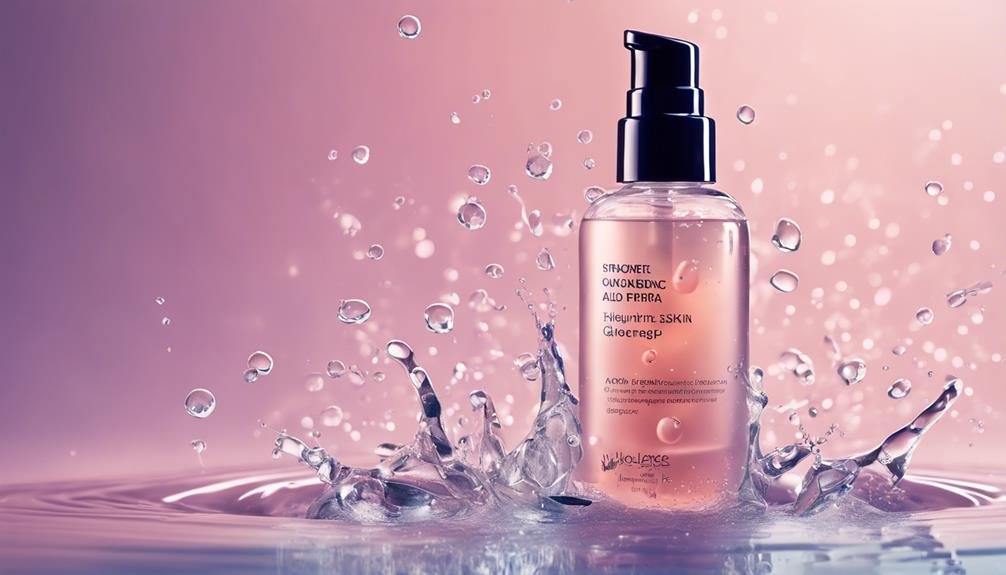
To effectively choose the best products for keeping your skin hydrated, it's essential to understand the key hydrating ingredients to look for.
Hyaluronic acid is a powerhouse ingredient known for its ability to attract and retain moisture in the skin, resulting in a plump and hydrated complexion.
Glycerin, a humectant, works by drawing moisture from the air into your skin, keeping it soft and supple.
Look for products containing ceramides, which help to strengthen the skin's barrier, preventing water loss and maintaining hydration levels.
Niacinamide, a form of vitamin B3, not only hydrates but also supports the skin's natural repair processes.
Additionally, ingredients like squalane, shea butter, and antioxidants such as vitamin E can provide deep hydration and protect your skin from environmental stressors.
When choosing hydrating products, seek out these ingredients to ensure your skin stays moisturized, healthy, and glowing.
Daily Hydration Routine
Maintaining a daily hydration routine is crucial for keeping your skin healthy and vibrant. Follow these steps to ensure your skin stays hydrated and glowing:
- Cleanse with a Gentle Cleanser: Start your day by washing your face with a gentle cleanser to remove impurities without stripping away essential oils.
- Apply a Hydrating Serum: After cleansing, apply a hydrating serum containing ingredients like hyaluronic acid or glycerin to boost moisture levels in your skin.
- Use a Moisturizer: Choose a moisturizer that suits your skin type and apply it both in the morning and evening to lock in hydration and prevent moisture loss.
- Drink Plenty of Water: Hydrate your skin from within by drinking an adequate amount of water throughout the day. Aim for at least 8 glasses daily to keep your skin hydrated and supple.
Hydration From Within

For optimal skin hydration, it's essential to focus not just on external skincare but also on internal factors that can impact your skin's moisture levels. Hydration from within plays a crucial role in maintaining healthy, glowing skin. Ensuring you are well-hydrated internally can significantly improve your skin's moisture retention and overall appearance.
Here are some key ways to keep your skin hydrated from within:
| Hydration Tips | Description |
|---|---|
| Drink Water | Stay hydrated throughout the day by drinking plenty of water. Aim for at least 8 glasses daily. |
| Eat Water-Rich Foods | Incorporate foods with high water content like cucumbers, watermelon, and oranges into your diet. |
| Herbal Teas | Enjoy hydrating herbal teas like chamomile or green tea, which can contribute to your daily fluid intake. |
| Limit Caffeine | Reduce caffeine intake as it can be dehydrating. Opt for water or herbal teas instead. |
| Monitor Alcohol Intake | Alcohol can dehydrate your skin, so consume it in moderation and balance it with water. |
Moisture-Rich Diet
As you focus on optimizing your skin's hydration levels, incorporating a moisture-rich diet can be a powerful way to support your skin from within. Eating foods that are hydrating can help keep your skin supple and glowing.
Here are four key components to consider for a moisture-rich diet:
- Stay Hydrated: Drinking an adequate amount of water is crucial for maintaining skin hydration. Aim for at least 8 glasses of water per day to support your skin's moisture levels.
- Include Fruits and Vegetables: Fruits like watermelon, cucumber, and oranges, as well as vegetables like spinach and bell peppers, are high in water content and can contribute to your overall hydration.
- Healthy Fats: Incorporate sources of healthy fats such as avocados, nuts, and seeds into your diet. These fats help maintain your skin's natural oil barrier, preventing moisture loss.
- Omega-3 Fatty Acids: Foods rich in omega-3s like salmon, chia seeds, and flaxseeds can help improve skin hydration and reduce inflammation, promoting a healthy complexion.
Hydration Mistakes to Avoid
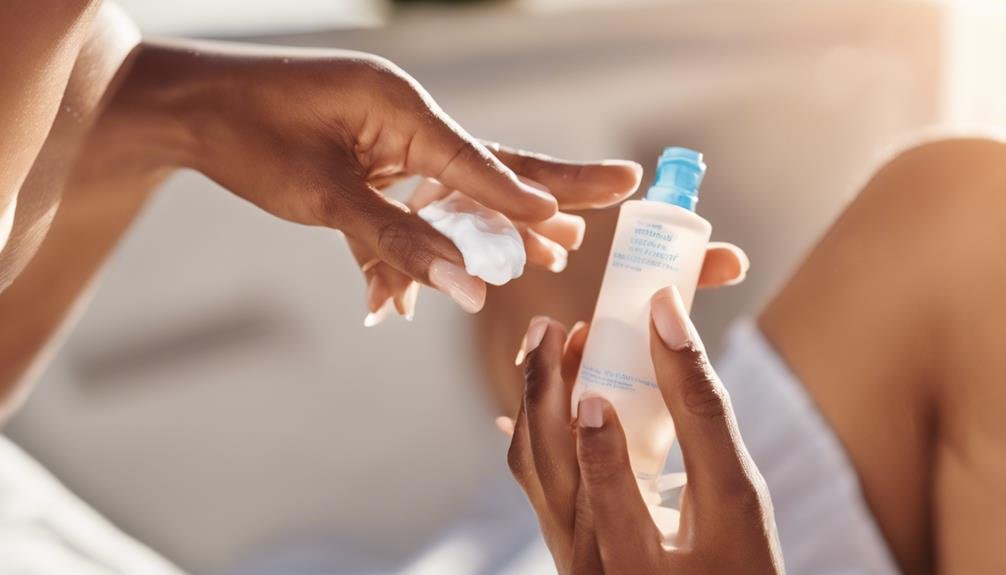
To ensure your skin remains adequately hydrated and healthy, it's essential to be mindful of common hydration mistakes that could inadvertently impact your skin's moisture levels. Hydration plays a crucial role in maintaining skin health, and avoiding these mistakes can help you achieve a glowing complexion.
Here are some hydration mistakes to avoid:
| Mistake | Impact on Skin |
|---|---|
| Not drinking enough water | Leads to dehydrated skin and dull complexion |
| Excessive caffeine intake | Can act as a diuretic, causing dehydration |
| Skipping moisturizer | Leaves skin vulnerable to dryness and irritation |
Nighttime Hydration Tips
When it comes to maintaining your skin's hydration levels, your nighttime routine plays a significant role. Proper hydration at night helps your skin repair and rejuvenate while you sleep, leading to a more radiant complexion. Here are some tips to enhance your nighttime hydration routine:
- Use a Hydrating Night Cream: Opt for a night cream that contains ingredients like hyaluronic acid or ceramides to lock in moisture and nourish your skin overnight.
- Drink Water Before Bed: Staying hydrated internally is just as crucial for your skin's hydration. Drink a glass of water before bed to keep your skin plump and hydrated.
- Humidify Your Bedroom: Consider using a humidifier in your bedroom to prevent moisture loss from your skin as you sleep, especially if you live in a dry climate.
- Avoid Hot Showers Before Bed: Hot water can strip your skin of its natural oils, leading to dryness. Opt for lukewarm showers to prevent dehydration and maintain skin hydration.
Hydrating Face Masks
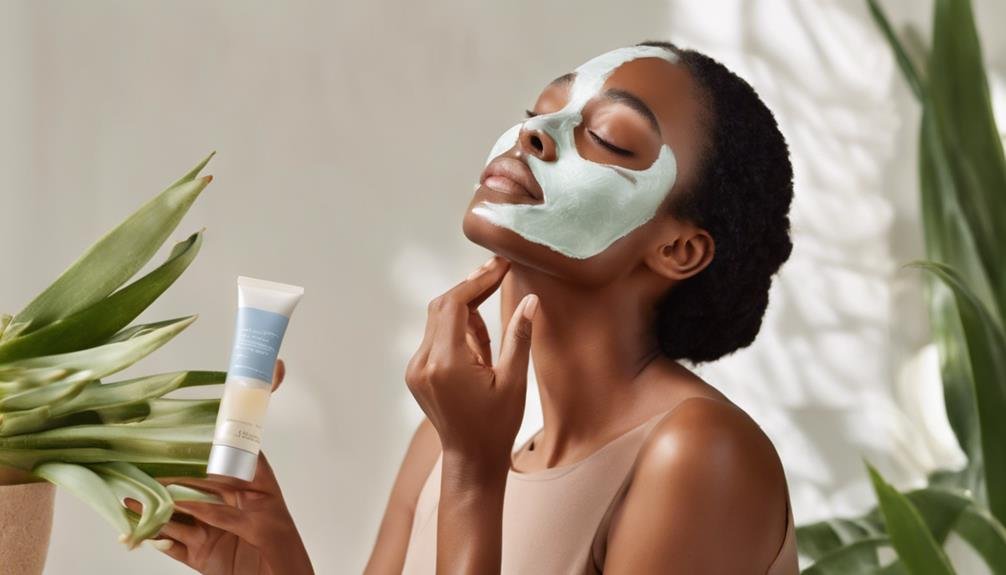
How can you give your skin an extra boost of hydration beyond your regular skincare routine? Hydrating face masks are a fantastic way to provide deep nourishment and moisture to your skin. These masks are formulated with potent ingredients like hyaluronic acid, glycerin, and vitamins that work to hydrate and revitalize your skin.
When choosing a hydrating face mask, look for ingredients like aloe vera, honey, or ceramides, known for their moisturizing properties. Apply the mask to clean skin and leave it on for the recommended time to allow the ingredients to penetrate deeply into your skin.
You can use hydrating face masks 2-3 times a week or as needed to keep your skin looking plump and radiant.
Hydrating face masks are especially beneficial for those with dry or dehydrated skin. They provide an extra layer of hydration that can boost the effectiveness of your regular skincare products. Incorporating hydrating face masks into your skincare routine can help you achieve a smoother, more supple complexion.
Hydration for Different Seasons
As the seasons change, so do the needs of your skin in terms of hydration. It's essential to adapt your skincare routine to the different environmental conditions throughout the year. Here are some tips to keep your skin hydrated in every season:
- Summer: During hot and humid summers, opt for lightweight, oil-free moisturizers to prevent clogged pores while still providing hydration.
- Fall: As the weather becomes cooler and drier, consider incorporating a richer moisturizer with ingredients like hyaluronic acid or ceramides to lock in moisture.
- Winter: In the cold winter months, switch to a heavier cream or balm to combat dry, flaky skin. Don't forget to protect your skin from harsh winds with a scarf or mask.
- Spring: With changing temperatures and increased humidity, focus on balancing your skin's hydration levels by using a hydrating serum under a lighter moisturizer.
Hydration for Specific Skin Concerns
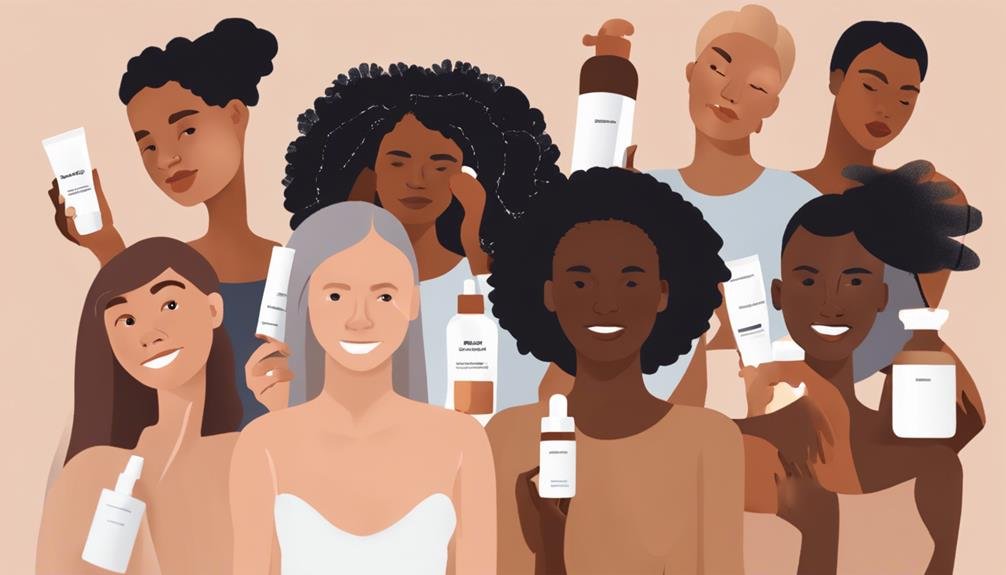
For individuals with specific skin concerns, maintaining adequate hydration is crucial for overall skin health and appearance. If you have oily skin, you may think skipping moisturizer is the way to go, but it's not. Opt for oil-free, non-comedogenic moisturizers to keep your skin hydrated without clogging pores.
Those with dry skin should look for richer, creamier moisturizers containing ingredients like hyaluronic acid and glycerin to lock in moisture. If you struggle with acne, choose lightweight, oil-free hydrating products to prevent breakouts while keeping your skin moisturized.
For individuals dealing with sensitive skin, fragrance-free and hypoallergenic moisturizers can help prevent irritation while providing the hydration your skin needs. Those with aging skin should consider anti-aging moisturizers with ingredients like retinol and peptides to hydrate and target fine lines and wrinkles simultaneously.
Professional Hydration Treatments
Exploring professional hydration treatments can offer targeted solutions for individuals seeking intensive skin nourishment and rejuvenation. These treatments are designed to deeply hydrate the skin, improve its texture, and address specific concerns like dryness, dullness, or fine lines.
Here are four effective professional hydration treatments to consider:
- HydraFacial: This treatment combines cleansing, exfoliation, extraction, hydration, and antioxidant protection in one non-invasive procedure, leaving your skin radiant and deeply hydrated.
- Microneedling with Hyaluronic Acid: By creating tiny micro-injuries in the skin, this treatment stimulates collagen production and allows for better absorption of hyaluronic acid, a powerful hydrating ingredient.
- Oxygen Facial: Oxygen infused into the skin during this treatment helps deliver hydrating serums deep into the dermis, resulting in plump and glowing skin.
- Chemical Peels: Certain chemical peels can exfoliate the skin, remove dead cells, and promote hydration, revealing a smoother and more hydrated complexion.
These professional treatments can provide a significant hydration boost, helping you achieve a well-nourished and rejuvenated skin.
Frequently Asked Questions
Can Over-Hydrating Skin Lead to Breakouts?
Over-hydrating skin can indeed lead to breakouts. When you flood your skin with too much moisture, it can disrupt the natural balance, clogging pores and causing acne. It's crucial to find the right balance for healthy skin.
How Often Should I Exfoliate for Hydrated Skin?
To keep your skin hydrated, exfoliate 1-3 times a week. Overdoing it can strip your skin of essential oils, leading to dryness. Find the right balance, and your skin will thank you with a healthy glow.
Is It Necessary to Use a Humidifier for Skin Hydration?
Using a humidifier can be beneficial for skin hydration. It helps maintain moisture levels in the air, preventing skin dryness. By adding moisture to the environment, a humidifier can support your skin's hydration needs.
Can Drinking Too Much Water Dehydrate the Skin?
Quenching your thirst with water won't dehydrate your skin. Hydration comes from within, so drink up! Overhydration may lead to other issues, but skin dehydration isn't one. Keep sipping sensibly for healthy skin.
How Long Does It Take to See Results From Hydrating Skincare Products?
Results from hydrating skincare products vary. Typically, improvements can be noticed within a few days to a couple of weeks. Consistent use is key for optimal outcomes. Remember, everyone's skin reacts differently, so be patient.
Conclusion
In conclusion, remember to replenish and rejuvenate your skin with a daily dose of hydration. Embrace hydrating ingredients, establish a routine that suits your skin type, and indulge in nourishing face masks. Hydrate from within by staying hydrated and consuming water-rich foods. Enhance your skin's radiance and resilience through professional hydration treatments. Let your skin sparkle with the power of hydration!

